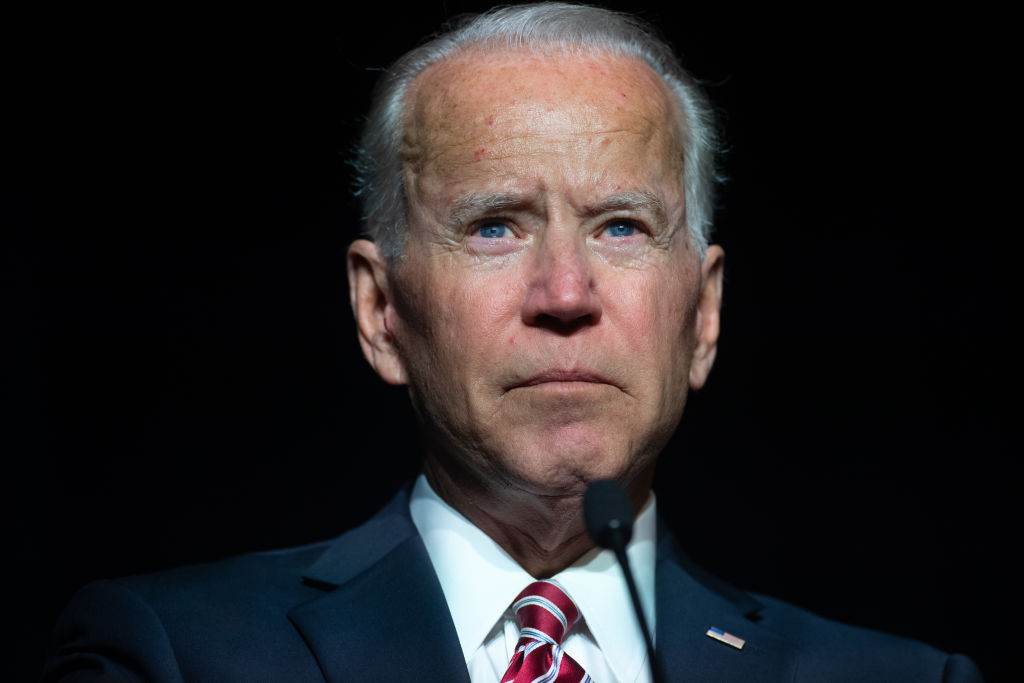Biden’s border blues
Democrats used to talk a lot about America’s southern border. The Trump administration’s handling of migrants crossing into the US was central to their moral case against the former president. But after Biden entered office, it didn’t take long for border security to become a major political liability for the president and his party.
In fact, there are now few things the administration appears more uncomfortable talking about than the border. Consider, for example, the great Kamala Harris non-border visit debacle of 2021. Or the unease with which Biden officials this week entertained the possibility of lifting the pandemic-era measures that border agents have been using to turn away tens of thousands of migrants. White House communications director Kate Bedingfield told reporters Thursday that lifting Title 42, which allowed for migrants to be blocked from entry into the US without consideration of their asylum claims on public health grounds, “was a decision the CDC will make.”
She could have been forgiven for wincing in anticipation of the political fallout as she explained that “we are preparing for contingencies. Our goal is to process migrants in a safe and orderly manner.” According to the Associated Press, the White House is aiming to lift the order in May. The backdrop to the decision are already sky-high migrant numbers. With more than a million migrants already apprehended at the halfway point of the government’s fiscal year, the end to pandemic restrictions threatens to trigger a surge at the border that would be politically disastrous for both the president and, more importantly, moderate Democrats who face re-election later this year.
The border is such a headache for Biden not just because of the opportunity it offers Republicans, but because of the fault lines it exposes in the Democratic coalition. Continuing with Title 42 has prompted resignations in protest from more progressive administration officials. More moderate Democrats see it as the only thing standing between them and a backlash from the voters. The party’s tough moral stance during the Trump years has come back to bite them, leaving Biden with little in the way of efficacious policy to enforce the southern border that hasn’t already described as totally unacceptable. Title 42 enabled them to fudge things and play for time. But time is running out.
Among the most vocal Democratic opponents to scrapping Title 42? Why, Joe Manchin of course. The West Virginian thorn in the president’s side and/or the only thing saving the Democrats from themselves (depending on your outlook) summed up what he saw to be the political downside of the decision as follows: “Oh my goodness. Just watch the news y’all put out every day, what’s coming across.”
What’s coming across is bad enough already — high prices and high-profile presidential gaffes to name just two problems. Add border chaos to the mix and Biden’s position gets even less enviable.
Can Rudd be trusted on China?
A recent edition of Politico’s China Watcher newsletter gave a generous plug to The Avoidable War, a new book by former Australian prime minister Kevin Rudd. The newsletter, by Phelim Kline, offers fulsome praise of Rudd’s “China credentials” before a Q&A with the former PM.
Reasonably hawkish in office, Rudd has more recently taken a far softer view of relations between China and the West. What could explain the about turn? Missing from the Politico piece is any description of Rudd’s work at the Asia Society and the New York-based Asia Society Policy Institute. According to Charity Watch, Rudd collects more than $1 million in annual compensation. That makes him one of the best paid think tank chiefs in America. The ASPI has been linked to figures close to the Chinese regime and business leaders with a vested interested in close US-China relations, like Blackstone founder Stephen Schwarzman. In 2017, the Asia Society reportedly refused to host an event featuring Hong Kong democracy activist Jason Wong.
All of this, one would think, is worth bearing in mind when it comes to considering Rudd’s pleas for a rapprochement between China and the West.
A gerrymander too far
Not so long ago, it appeared that the latest cycle of flagrantly partisan redistricting had tilted the electoral playing field towards the Democrats. But a trio of recent court decisions has changed that.
Last week in Maryland, where Democrats are in complete control of the redistricting process, a judge threw out the proposed new map and forced lawmakers to come up with a less one-sided redrawing of the lines. In Ohio, Democrats find themselves on the losing side of a court redistricting battle. For fiddly procedural reasons, the midterms in the state will be contested on a Republican-friendly map even if it is later rejected by the state’s supreme court. According to redistricting guru David Wasserman, these two developments turn a redistricting cycle that looked set to net Democrats four or five seats into one that will only net them one or two.
Things got worse for Democrats yesterday when a court in New York — the site of perhaps the most aggressive gerrymander of the cycle — blocked a proposed map that was comically one-sided, devising absurd districts that increased the number of Democratic-leaning seats by three, and decreased the number of Republican-leaning seats by the same number. Many expect a higher court to overturn the decision. But even if Democrats get their way in New York, the redistricting picture is not quite as rosy as it looked a few months ago.
What you should be reading today
Grace Curley: What if Hunter Biden gets indicted?
Karol Markowicz: There’s nothing ‘pro-trans’ about deleting women
Francesca Peacock: The Stepford Wives and today’s empty feminism
David Siders, Politico: Debate dodging takes off in the midterms
Michael Hendrix and Hannah E. Meyers, City Journal: Listen to New York’s crime weary
Katherine Eban, Vanity Fair: Inside the virus-hunting nonprofit at the center of the Covid lab-leak controversy
Poll watch
President Biden Job Approval
Approve: 42.8 percent
Disapprove: 51.7 percent
Net approval: -8.9 (RCP Average)
Pennsylvania Republican Senate primary
David McCormick: 14 percent
Mehmet Oz: 14 percent
Kathy Barnette: 6 percent
Carla Sands: 6 percent
Jeff Bartos: 5 percent
Undecided: 51 percent (Emerson/the Hill)

























